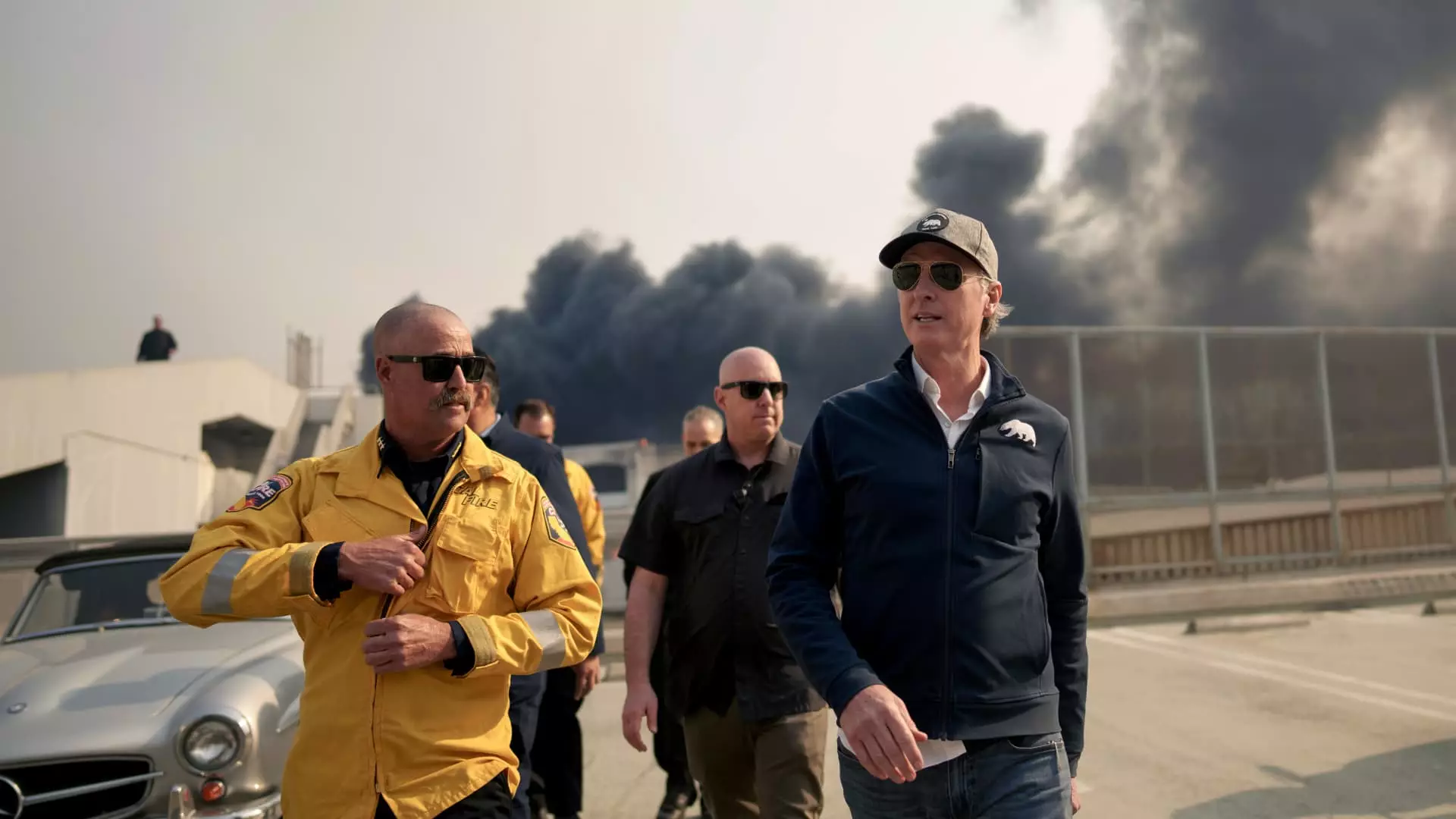The recent wildfires devastating California have ignited not just flames in the hills but also a heated political debate centering around the state’s leadership and the response from Washington. Governor Gavin Newsom has openly criticized President-elect Donald Trump for his misleading claims regarding the state’s water management and disaster response strategy. As the death toll rises and communities face immense devastation, the urgency for collaborative action becomes apparent. This article will explore the political dynamics at play, the implications of misinformation, and the need for accountability in leadership during crises.
In a recent interview on NBC News’ “Meet the Press,” Newsom labeled Trump’s assertions regarding the current wildfires as disinformation that does no favors for anyone involved. Trump resorted to harsh rhetoric on social media, directing his ire toward Newsom and other state officials while suggesting that their decisions directly contributed to the catastrophic fire situation. Specifically, Trump accused Newsom of blocking water flow from Northern to Southern California, a claim that has no grounding in factual evidence.
Such unfounded accusations can have dire consequences. Misinformation has the potential to distract from the real issues and responsibilities each party holds in crisis management. It creates a narrative that can undermine collaborative efforts necessary for recovery and rebuilding. The politicization of natural disasters—as highlighted in Trump’s commentary—can impede real discussions about improving water policies, wildfire prevention strategies, and disaster preparedness. As citizens grapple with the destruction around them, accountability should take precedence over public finger-pointing.
In the aftermath of the fires, the question of federal assistance becomes a pressing concern. Newsom expressed alarm over Trump’s past actions of withholding disaster aid from states led by political adversaries. He pointed out that this pattern—evident in previous tragedies affecting states like Puerto Rico, Utah, and Michigan—brings anxiety for Californian residents. A government that prioritizes political loyalty over humanitarian needs undermines the essence of its role.
The need for timely and adequate federal support in disaster scenarios is crucial. As wildfires continue to ravage communities, firefighters and emergency services work tirelessly to combat the blazes. Politicians must ensure that these essential services receive the backing they need, instead of getting caught in a web of political gamesmanship.
In a bid to foster understanding and open dialogue, Newsom extended an invitation to Trump to visit California and witness the devastation firsthand. Such an invitation is not merely symbolic; it represents a call for leaders to engage in constructive dialogue about crisis management. By seeing the aftermath of the wildfires, political leaders could better appreciate the dire need for effective disaster response and resource management.
The optics of leadership matter, especially in times of crisis. When political figures engage with the communities they serve, it allows for a deeper understanding of the challenges faced by individuals and families affected by disasters. Instead of trading barbs on social media, a direct engagement could lead to more powerful advocacy for the resources and policies that could alleviate suffering.
As California battles wildfires, the focus should ideally shift from political disputes to proactive solutions. The confrontation between Newsom and Trump serves as a reminder of how easily political agendas can overshadow the urgent needs of citizens in distress. Moving forward, it is vital that leaders prioritize the restoration and healing of communities rather than perpetuating misinformation and escalating conflicts.
In the wake of natural disasters, citizens deserve unity and commitment from their leaders rather than division and animosity. Whether through collaborative approaches to water management, emergency services funding, or wildfire prevention strategies, it’s critical for political figures to remember their core responsibility: to serve the people and promote their welfare above all else.

Leave a Reply